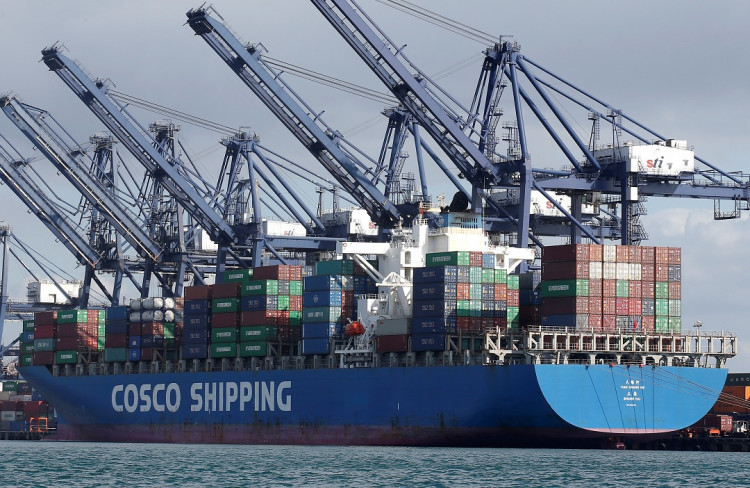The maritime industry is currently navigating through a turbulent period as the effectiveness of the Red Sea Convoy Alliance, formed to combat the threat from Yemen's Houthi rebels, is increasingly under scrutiny. Shipping giants like Hapag-Lloyd have opted for alternative routes, circling the Cape of Good Hope rather than risking the volatile Red Sea waters.
Despite the formation of the 20-nation alliance led by the United States, the deterrent effect has yet to manifest, and rifts within the group and increased pirate activities are raising serious concerns about the security of this vital maritime passage.
Tracking data from Kuehne+Nagel indicates that a significant number of container ships are avoiding the Red Sea, preferring the lengthy detour around South Africa's Cape of Good Hope. This shift has led to a 14% decrease in vessel traffic in the region and escalating international oil prices as companies like British Petroleum and Norway's National Oil Company suspend operations.
The ongoing crisis is not only affecting shipping schedules but also has the potential to impact global supply chains, with companies like IKEA warning of possible delivery delays and increased product costs.
Despite the joint task force's intended purpose to shield ships from Houthi insurgent attacks, skepticism remains among the maritime community. The exact operational details and rules of engagement of the convoy alliance remain unclear, leaving shipping companies uncertain about the level of protection they can expect. Furthermore, internal rifts within the alliance and the reluctance of certain member countries to fully commit their naval resources are complicating efforts to present a united front against the threats.
Adding to the complexity is the potential resurgence of Somali pirates, taking advantage of the regional chaos to reassert their presence. The recent hijacking of the Malta-flagged bulk carrier Ruen near Somalia's coast marks the first successful pirate seizure since 2017. This incident, coupled with a spike in Houthi attacks on merchant ships, signifies a worrying trend for the maritime industry. If not addressed, these threats could lead to a significant escalation of risks in one of the world's busiest shipping lanes.
As the Red Sea Convoy Alliance grapples with internal disagreements and the rise of pirate activities, the global shipping industry faces a period of heightened uncertainty. Companies are forced to make difficult decisions, balancing the risks of navigating through the Red Sea with the increased costs and time associated with alternative routes.
The effectiveness of the alliance's operations and the broader geopolitical dynamics in the region will be critical factors in determining the future security of this crucial maritime corridor. With so much at stake, the shipping community and the world at large watch closely as events unfold in the turbulent waters of the Red Sea.




